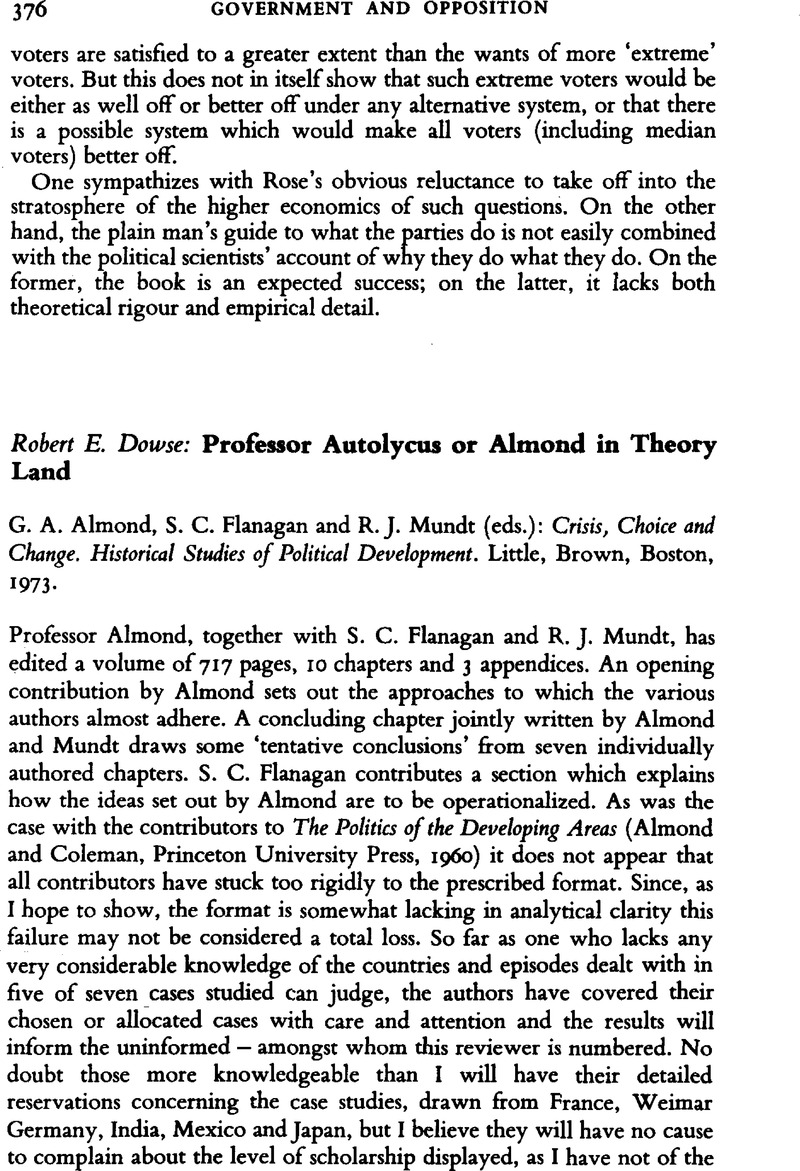No CrossRef data available.
Article contents
Professor Autolycus or Almond in Theory Land
Published online by Cambridge University Press: 28 March 2014
Abstract

- Type
- Review Articles
- Information
- Copyright
- Copyright © Government and Opposition Ltd 1975
References
1 And S. C. Flanagan demonstrates considerable and heroic ingenuity in doing just this in his contributions to the volume.
2 A good example of this occurs in Kavanagh's interesting piece on the British crisis of 1931 (p. 208): ‘Our coalition analysis also predicted that at an earlier stage of the crisis a Lib–Lab coalition would recommend itself to MacDonald. In that instance we were able to explain that coalition's relative lack of appeal to MacDonald in terms of his own non-rational preferences.’
3 Logic, incidentally, is a word that Almond appears especially to favour, although in substance he is perhaps a trifle too inclined to dismiss those who have criticized him on logical grounds as logic choppers (p. 7).
4 Lest historians feel uneasy at this juncture Professor Almond explains: ‘We had no quarrel with the ideographic propensities of history. On the contrary, such an ap roach is evidently important.’ Shades of Podsnap! Presumably Almond really means ‘historians’ rather than ‘history’.
5 ‘The materialist doctrine that men are products of circumstances and upbringing, and that, therefore, changed men are products of other circumstances and changed upbringing, forgets that it is men that change circumstances and that the educator himself needs educating.’ Karl Marx, 1845.


